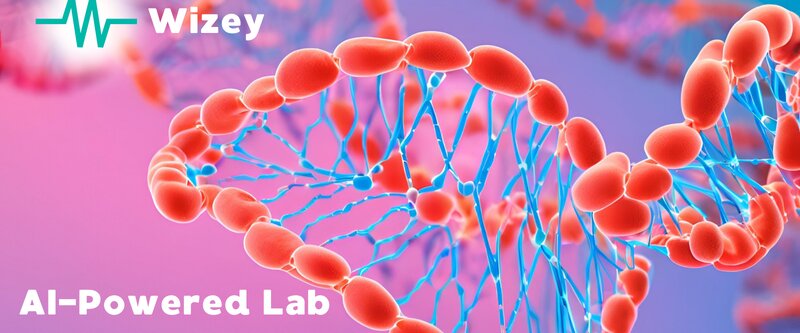🧬 Personalized Medicine: Healthcare Tailored to Your DNA

The era of one-size-fits-all medicine is rapidly giving way to a more nuanced approach: personalized medicine. This revolutionary paradigm shift is transforming how we prevent, diagnose, and treat diseases by tailoring medical decisions to the individual patient based on their genetic makeup, environment, and lifestyle.
🔬 What is Personalized Medicine?
Personalized medicine, also known as precision medicine, is an approach that takes into account individual variability in genes, environment, and lifestyle for each person. Unlike the traditional approach where treatments are designed for the average patient, personalized medicine aims to customize healthcare with medical decisions, treatments, practices, or products tailored to the individual patient.
At its core, personalized medicine relies on:
- Genomic information: Understanding a patient's genetic profile to predict disease risk and treatment response
- Biomarkers: Measurable indicators that can predict medical outcomes
- Advanced diagnostics: Tools that can detect diseases earlier and with greater precision
- Targeted therapies: Treatments designed to address specific molecular mechanisms of disease
🧪 The Science Behind Personalized Medicine
The foundation of personalized medicine is genomics—the study of all of a person's genes (the genome), including interactions of those genes with each other and with the person's environment. The completion of the Human Genome Project in 2003 marked a significant milestone, providing a reference human genome sequence and laying the groundwork for personalized medicine.
Today, technologies like next-generation sequencing (NGS) have made genetic testing faster, more accurate, and more affordable. This has enabled:
- Pharmacogenomics: The study of how genes affect a person's response to drugs, allowing doctors to prescribe medications that are most likely to work and least likely to cause side effects
- Disease risk assessment: Identifying genetic variants associated with increased risk for specific diseases
- Cancer genomics: Analyzing the genetic mutations in a patient's tumor to guide treatment decisions
🏥 Real-World Applications
Cancer Treatment
Perhaps the most advanced area of personalized medicine is oncology. Traditional cancer treatments often follow a trial-and-error approach, with patients enduring significant side effects for treatments that may not be effective for their specific cancer.
With personalized medicine:
- Tumors can be genetically profiled to identify specific mutations
- Treatments can be selected based on the genetic characteristics of the tumor
- Patients can avoid ineffective treatments and their associated side effects
- Monitoring can detect resistance to treatments early and guide adjustments
For example, patients with breast cancer who have HER2-positive tumors can be treated with targeted therapies like trastuzumab (Herceptin), which specifically targets the HER2 protein. This approach has significantly improved outcomes for these patients.
Pharmacogenomics
Different people can respond very differently to the same medication. What works well for one person might be ineffective or cause severe side effects in another. Pharmacogenomics helps predict how a patient will respond to a specific medication based on their genetic makeup.
For instance:
- Patients with certain variants of the CYP2C19 gene may not effectively metabolize the antiplatelet drug clopidogrel (Plavix), putting them at risk for cardiovascular events despite treatment
- Variations in the TPMT gene can affect how patients metabolize certain chemotherapy drugs, potentially leading to severe toxicity if not accounted for
- Genetic testing can help determine the appropriate dosage of warfarin, a blood thinner with a narrow therapeutic window
🔮 The Future of Personalized Medicine
As technology advances and our understanding of the human genome deepens, personalized medicine will continue to evolve. Some exciting developments on the horizon include:
Liquid Biopsies
These blood tests can detect circulating tumor DNA, allowing for non-invasive cancer detection and monitoring. They have the potential to revolutionize cancer screening and treatment monitoring.
CRISPR and Gene Therapy
Gene-editing technologies like CRISPR-Cas9 offer the potential to correct genetic mutations that cause disease. Clinical trials are already underway for conditions like sickle cell disease and certain forms of blindness.
AI and Machine Learning
Artificial intelligence can analyze vast amounts of genetic and clinical data to identify patterns and make predictions about disease risk and treatment outcomes. This will enable even more precise and personalized medical recommendations.
Wearable Technology and Digital Health
Continuous monitoring through wearable devices provides real-time health data that can be integrated with genetic information to provide a more comprehensive picture of an individual's health.
⚖️ Challenges and Ethical Considerations
Despite its promise, personalized medicine faces several challenges:
- Cost and accessibility: Ensuring that advanced genetic testing and targeted therapies are accessible to all patients, not just those who can afford them
- Data privacy: Protecting sensitive genetic information from misuse
- Health disparities: Addressing the underrepresentation of certain populations in genetic research
- Clinical implementation: Training healthcare providers to interpret and apply genetic information in clinical practice
- Regulatory frameworks: Developing appropriate regulations for novel diagnostic tests and treatments
🔄 Conclusion
Personalized medicine represents a fundamental shift in how we approach healthcare—from reactive to proactive, from population-based to individual-based, and from trial-and-error to precision treatment. While challenges remain, the potential benefits are enormous: more effective treatments, fewer side effects, earlier disease detection, and ultimately, better health outcomes.
As we continue to unravel the complexities of the human genome and develop technologies to apply this knowledge clinically, personalized medicine will increasingly become the standard of care, ushering in a new era of healthcare that is truly tailored to the individual.